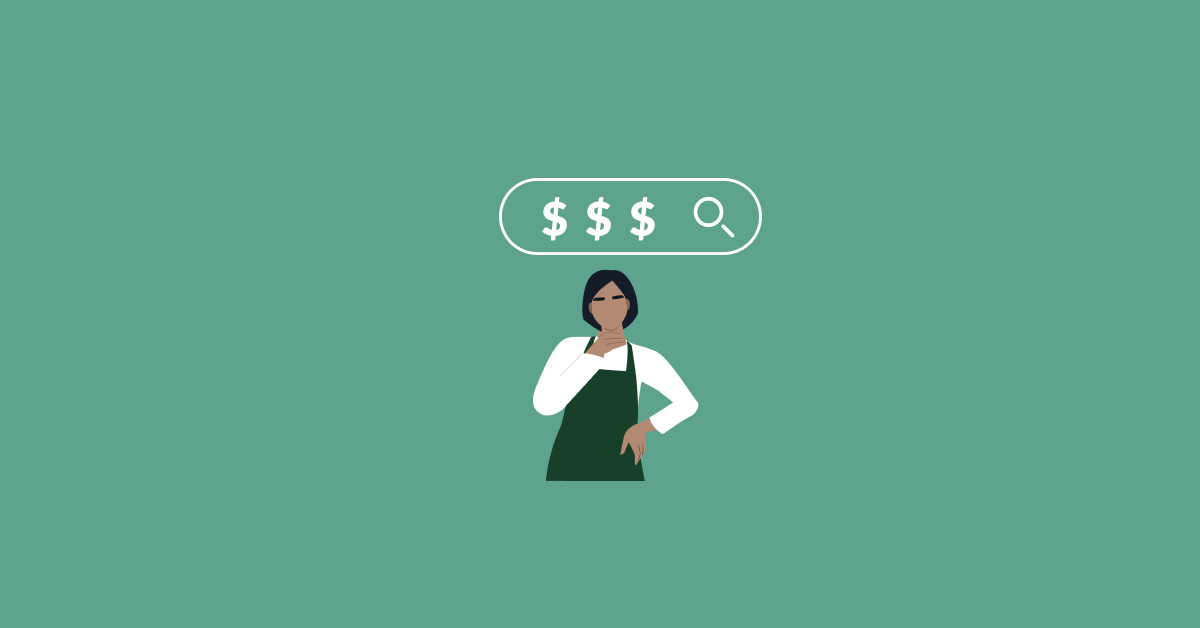
Merchant cash advances (MCAs) were the fourth most common form of financing sought by American businesses last year, according to the Federal Reserve System’s Small Business Credit Survey.
Right now, small businesses are looking for every form of help they can get, as inflation, hiring challenges, and supply chain and shipping difficulties continue to create operational problems.
Vistage’s most recent quarterly CEO Confidence Index, which measures small business leaders’ views on business and the economy, showed:
- 87% said wages and compensation had increased
- 81% cited increased prices from vendors
- 62% reported higher costs for raw materials
- 57% experienced higher energy prices.
But not every business can secure a bank loan or line of credit to shore up their cash flow during times of increased costs and tightened revenues. And maybe that’s why some businesses are turning to MCAs.
- What is a merchant cash advance?
- Are merchant cash advances complicated?
- Are merchant cash advances less legitimate than loans?
- Do businesses need collateral for merchant cash advances?
- Are merchant cash advances a form of predatory lending?
- Do MCA providers collect the same amount each month?
- When and why do large businesses use MCAs?
Raise capital for your small business
Check out our guide on how to secure the funding you need to grow your business.
What is a merchant cash advance?
With a merchant cash advance, a business owner borrows a fixed amount of money and remits that advance over time, with interest or a flat fee, through a portion of their daily credit card sales.
Merchant cash advances have been around for quite some time, but they have only recently gained popularity as a funding option for small businesses.
“The funds can be deposited directly into the business’s bank account, and the repayment schedule is typically based on the business’s sales volume, so businesses don’t have to worry about making fixed monthly payments,” said Max Benz of BankingGeek.
- Unlike traditional loans, MCAs are business funding products that provide cash funds to an organization for expansion, business growth or emergency cash flow.
- MCAs are structured as a lump sum payment to a business in exchange for an agreed-upon daily percentage of future sales.
- While applying MCAs, merchants such as retailers and restaurateurs don’t need to do as much paperwork as they would have to for bank commercial loans and they can also get quick approval and funding.
Are merchant cash advances complicated?
Because they are based on credit card sales, businesses that have high credit card sales but low credit scores may still be able to qualify for this type of funding.
Merchant cash advances can be used for a variety of purposes, from covering operational costs to funding expansion plans. What this means for businesses is:
- You can get a merchant cash advance if you accept credit card payments
- Your borrowed amount is based on the amount of cash flow you’re generating from credit card payments
- You can remit the borrowed amount quickly enough if your business has a high number of daily credit card transactions.
“MCAs are generally relatively easy to qualify for and most people just apply online for one,” said Malini Krishna, assistant vice president and senior consultant at small business lender Pursuit.
“However, the terms of the contract might be complicated, and borrowers may not understand all the fees they are paying for the money they seek. It’s important for MCA borrowers to understand the factor fee, other fees, and repayment terms before you take the money.”
Unlike traditional loans, which often require extensive documentation and a good credit score, merchant cash advances can be approved quickly and with minimal paperwork.
Small and medium businesses typically have had a difficult time getting approved for a traditional loan. An MCA program allows for a merchant processor to underwrite first-party data. Thereby allowing the SMB to get access to the capital they need.
— Rhett Roberts, CEO of Loan Pro
Are merchant cash advances less legitimate than loans?
Unlike a small business loan, a merchant cash advance is not based on creditworthiness. An MCA does not qualify as a loan because it’s a sale of future revenue. That difference means MCAs are not subjected to the regulations that standard small business loans are.
“Technically speaking, MCAs can’t be classified as loans because they have different interest rates and APRs compared to bank loans,” said Jessica Chase, a loan and finance expert at Premier Title Loans.
“An MCA provider is purchasing your future sales at a discount. Typically such a financing option is designed for small businesses that require immediate funds. They can then use it to manage cash flow shortages and cover overhead expenses.”
Do businesses need collateral for merchant cash advances?
One of the appealing aspects of an MCA is that providers don’t typically require collateral, making it a relevant choice for businesses that don’t have any assets to use as security.
- However, most MCA providers will closely scrutinize your business’s credit card sales history and financial statements before approving your application.
- And when you are approved, you may need to pay a higher interest rate than you would with a loan.
Are merchant cash advances a form of predatory lending?
Some analysts claim merchant cash advances are predatory because they are risky and can lead to bad debt. For small businesses that are really struggling to keep the lights on, these advances can be difficult to remit to the MCA provider, leading to further financial hardship.
However, others argue MCAs can be useful for certain small businesses. For example, they can provide the funds needed to help a business through a rough patch. When used responsibly, MCAs can be a valuable tool for such small businesses.
Kevin Stewart, a co-founder of US Bad Credit Loans, said it’s unfair to conclude all MCAs are predatory based on the actions of a few bad industry players who use dishonest tactics to get a borrower to take a loan. “Some MCAs are ethical and have the borrowers’ prosperity in mind rather than their own,” he said.
Do MCA providers collect the same amount each month?
Because MCAs are based on a percentage of your future credit card sales, not a fixed amount, the actual amount the provider collects changes each month.
- The total collection amount made on the cash advance each month will dip, when you go through a slow sales period.
- If sales rise during holidays or a period of expansion, the total monthly amount will increase.
In other words, the higher your credit card sales each month, the higher the collection amount you need to remit. The upside in this scenario is that you can remit the entire advance sooner.
When and why do large businesses use MCAs?
Larger businesses use MCAs much less than smaller businesses do. But they can be helpful for bigger businesses when they experience problems such as temporary closures due to natural disasters or other events that can damage stores or destroy significant amounts of inventory. In these instances, MCAs can be used to finance replacement inventory or other short-term commercial needs.
Many businesses can benefit from merchant cash advances, regardless of size.
- Larger businesses that are anticipating a lot of future sales and that are prepared to deal with factor and retrieval rates are potential candidates for merchant cash advances
- Larger businesses with a clear understanding of seasonal cash flow crunches can use the advance to take care of immediate funding needs without sacrificing long-term goals.
Merchant cash advances can also be used to fund repairs or other costs associated with natural disasters. One major advantage of MCAs for larger businesses is that they are typically easier to obtain than traditional loans. MCAs do not require collateral, making them an ideal option for larger businesses that do not have the assets to secure a loan.
Larger businesses may also apply for MCAs when they plan to buy their raw materials or merchandise in advance. “But once they start using MCA, they would have to make daily repayments, based on how many products they sell through credit card transactions,” said Elisa Bender, co-founder of RevenueGeeks.
“Larger businesses only use MCAs for short-term needs, when it is not financially feasible for them to borrow through a credit line,” said Karissa Clark, general manager of LoansJury. “Usually, they use them for funding seasonal demand, inventory, or project needs.”
Seeking simple small business cash flow?
We know merchant cash advances can give your business what it needs without paperwork, long waits or large collateral requirements. That’s why we offer simple and seamless merchant-first financing with Lightspeed Capital. If you’re a Lightspeed customer looking for funding, talk to an expert today.

News you care about. Tips you can use.
Everything your business needs to grow, delivered straight to your inbox.



